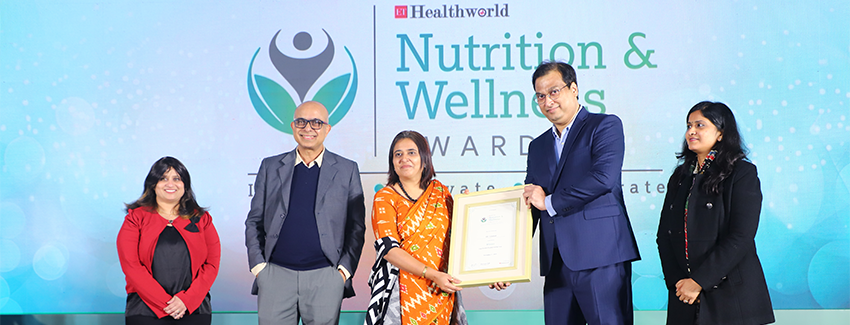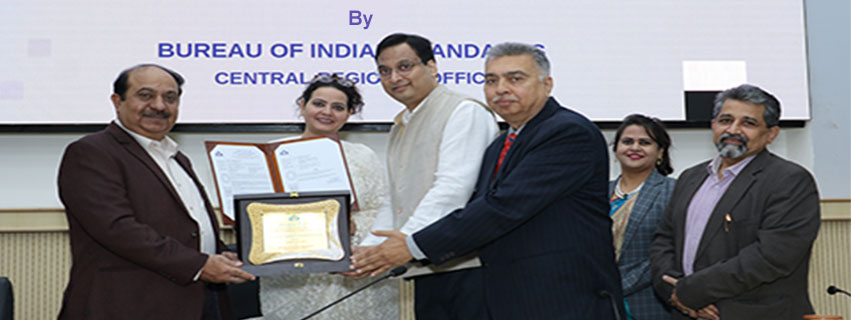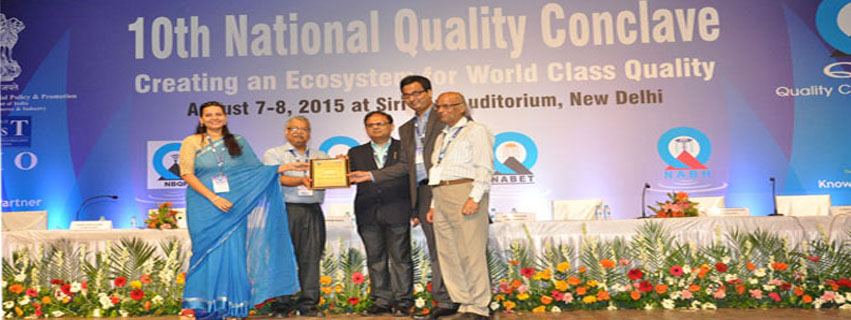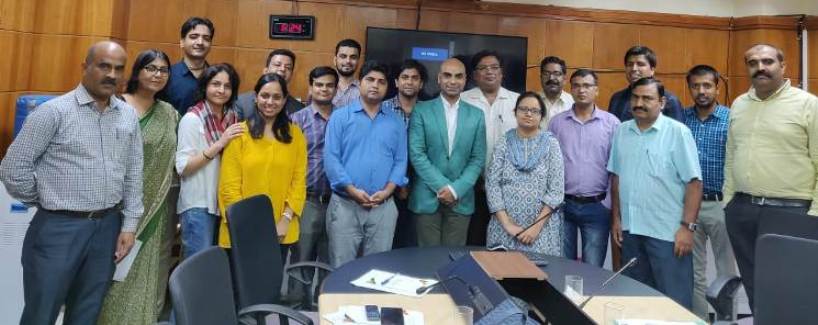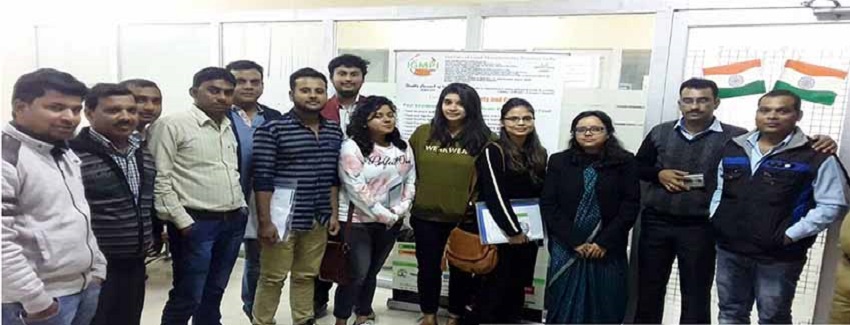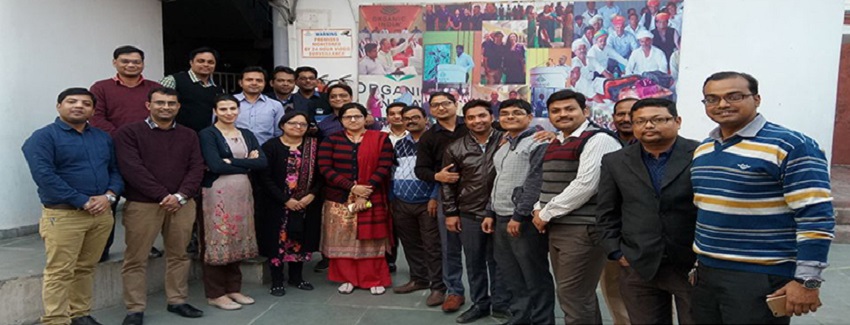(An Autonomous Body Recognized by Ministry of Commerce & Industry, Government of India)
Competency based placement focussed Education | Training | Research | Consultancy
Post Graduate Diploma/Executive Diploma in Environmental Law and Policy (PGDELP/EDELP)
As environmental challenges escalate globally—from climate change and pollution to biodiversity loss and unsustainable development—there is an urgent need for legal and policy professionals who can navigate the complex interface between ecological sustainability and regulatory frameworks. The Post Graduate / Executive Diploma in Environmental Law & Policy is designed to equip participants with an in-depth understanding of the legal, institutional, and policy dimensions of environmental governance in India and beyond. This interdisciplinary program integrates constitutional mandates, statutory frameworks, international agreements, and sector-specific regulations to develop professionals capable of addressing pressing environmental issues through law, policy reform, and advocacy.
Programme Structure
Module 1: Foundations of Environmental Law and Policy
• Historical development of environmental law at the global and national levels • Foundational principles: precautionary, polluter pays, and sustainable development • Legal frameworks as instruments of environmental governance and policymaking
Module 2: Constitutional & Legal Framework in India
• Constitutional provisions relevant to environmental protection • Division of environmental powers between the Union and State governments
Module 3: Institutional Structures and Environmental Governance
• Structure and roles of MoEFCC, CPCB, SPCBs, and State Departments • Mandate and jurisdiction of the National Green Tribunal • Growth of judicial activism and environmental PILs in India
Module 4: Environmental Impact Assessment
• Overview of EIA Notification 2006 and subsequent amendments • Legal effectiveness, procedural concerns, and implementation challenges
Module 5: Life Cycle Assessment (LCA) and Environmental Audits
• Core concepts and stages involved in Life Cycle Assessment • Legal and policy relevance of LCA within Indian regulatory systems • Sectoral applications in industry, infrastructure, and waste management
Module 6: Pollution Control Laws in India
• Overview of major pollution control legislations and their scope • Regulatory mechanisms: consent processes, emission norms, and compliance monitoring
Module 7: Forests, Biodiversity, and Wildlife Protection
• Legislative frameworks governing forest conservation and biodiversity • Wildlife protection mechanisms and regulation of eco-sensitive zones • Recognition of tribal and community rights under the Forest Rights Act (2006)
Module 8: Waste Management Law and Circular Economy
• Overview of the Solid Waste Management Rules, 2016 • Regulatory provisions for plastic, e-waste, biomedical, and hazardous waste • Implementation of Extended Producer Responsibility (EPR) and circular economy initiatives • Municipal obligations, citizen engagement, and judicial enforcement
Module 9: International Environmental Law & India’s Commitments
• Key global environmental treaties and conventions • India’s role in international environmental negotiations and compliance frameworks • Principles of Common but Differentiated Responsibilities (CBDR), environmental justice, and equity
Module 10: Climate Change Law and Policy Instruments
• National and State-level Climate Action Plans (NAPCC and SAPCCs) • Legal obligations under the Paris Agreement and mechanisms like carbon markets • Climate litigation, adaptation laws, and just transition frameworks
Module 11: Urban Development, Land, and Environmental Law
• Legal frameworks for CRZ regulation, Smart Cities, and land acquisition • Green infrastructure codes: ECBC, SEZ policies, and wetland protections • Environmental implications of displacement and urban development safeguards
Module 12: Energy, Environment & Sustainability Policy
• Legal frameworks for renewable energy and international cooperation (e.g., ISA) • Institutional roles of CERC, MNRE, and key policy instruments • Environmental and legal considerations in hydropower, coal, and nuclear energy projects
Module 13: Technology, Economics, and Emerging Environmental Challenges
• Environmental economics: valuation methods, taxation tools, and market-based instruments • Application of GIS, remote sensing, and AI in monitoring and compliance • Legal implications of emerging technologies: GMOs and climate tech
Module 14: Corporate Accountability, ESG, and Labour Compliance • Environmental and social responsibilities under the Companies Act and SEBI ESG mandates • CSR obligations for sustainability, workplace safety, and community welfare • Legal provisions from the Factories Act and OSH Code, 2020 on environment and worker protection • Governance challenges: greenwashing, disclosure gaps, and compliance enforcement
Module 15: Industry Best Practices & Case Studies
Module 16: Capstone Project
Eligibility
Graduates in any discipline are eligible for our Post Graduate Diploma, Executive Diploma and Professional Certification Programmes.
Programme Duration
The minimum duration to complete the PG diploma programme is 12 months and maximum is 24 months. The minimum duration to complete the executive diploma programme is 6 months and maximum is 12 months.
Programme Mode
Registrations are currently open for regular and Part-time (Online Live Classes) both modes.
Programme Deliverables
A comprehensive study material for all the modules in hard copies ensuring the needs of the audience. The accompanying training material is appropriately aligned with the current Industry’s expectations.
- Interactive or online live sessions on all key areas of the programme giving all flexibility to the participants
- Online Live Classes/Part-time for all the modules will be conducted on the weekends. Moreover, a doubt clearing session will also be scheduled before the examination
- All the efforts are made by IGMPI faculty members to make the entire programme modules easily understandable
- Assessment and evaluation for all the programme modules in order to enhance the levels of competencies and skills of the participants leading towards the objective of application in the job
- At the end of each programme modules, the trainers shall obtain feedback from the participants using specially designed questionnaires
- All learning and training delivery initiatives shall be conducted in English
Examination and Certification
All the participants are obliged to timely submit completed assessment assignments (during the programme, usually after every module) and appear for an online proctored exam at the end of the programme. After successful completion, the participants will be awarded Post Graduate Diploma/ Executive Diploma in Environmental Law & Policy by Centre for Environmental Health and Safety, IGMPI. For all the above-mentioned modules elaborate programme material, self-assessment assignments and project work details would be provided by the Institute from time to time. Details get updated on the webpage as well.
Discipline in Classes and Examination
Every student is required to observe a disciplined behaviour during her/his classes, assessments & examinations and to follow instructions from the Professors. Any act of indiscipline may result into discredit & it will be mentioned in her/his academic report.
Placement Assistance & Corporate Relations
The Institute has partnered with many organizations for providing with placement assistance to its participants. Besides, it has a robust placement cell comprised of senior level Human Resources professionals and Talent Acquisition experts which maintains close links with business and industry. This cell is continuously engaged in promoting the employability of our participants and encouraging the concerned Human Resource department and Hiring Managers to recruit/hire our participants for their vacant positions. The efforts of our placement cell also include helping with professional resume writing and interview skills.
In recent months, the Institute has witnessed more and more participation from professionals working with global think tanks. The IGMPI ‘s Corporate Resource Division actively recommends our students and training participants for various job requirements and specialized roles to Human Resource, Talent Acquisition as well as the heads of various departments in the industrial sector on a regular basis.
Future career prospects
Graduates of this program can pursue rewarding careers in environmental law firms, regulatory bodies like CPCB and SPCBs, corporate ESG and compliance teams, international organizations (such as UNEP, UNDP, and GIZ), and non-governmental advocacy groups. Opportunities also exist in climate litigation, environmental consultancy, public interest lawyering, and sustainable development policy advisory. As India strengthens its environmental regulations and corporate accountability frameworks, and as global climate and biodiversity commitments intensify, skilled professionals with legal-policy expertise in environmental matters are increasingly vital to both governance systems and the private sector's sustainability transformation.
Programme Fee Details
Programme fee details will appear here.
Last date for submitting completed Application Form: 6th Mar 2026.
For further enquiries, call or write to us on:
18001031071
(Toll Free -9:00 am to 5:30 pm IST-except on Central Government holidays)/
info@igmpi.ac.in
NEWSLETTER
Other Programmes
- Business Sustainability (PGDBS/EDBS)
- Remote Sensing and Geographic Information System (PGDRSGIS/EDRSGIS)
- Power Management (PGDPM/EDPM)
- Oil & Gas Technology and Management (PGDOGTM/EDOGTM)
- Petroleum Technology and Management (PGDPTM/EDPTM)
- Green Technologies (PGDGT/EDGT)
- Fire Technology & Industrial Safety Management (PGDFTISM/EDFTISM)
- Water Resource Technology and Management (PGDWRTM/EDWRTM)
- Urban Planning (PGDUP/EDUP)
- Public Policy and Sustainable Development (PGDPPSD/EDPPSD)
- Natural Resource and Biodiversity Management (PGDNRBM/EDNRBM)
- Corporate Affairs Management (PGDCAM/EDCAM)
- Business and Human Rights (PGDBHR/EDBHR)
- Geoinformatics (PGDGI/EDGI)
- Climate Change Technology (PGDCCT/EDCCT)
- Environmental Social & Governance (PGDESG/EDESG)
- Disaster Management (PGDDM/EDDM)
- Waste Management (PGDWM/EDWM)
- Sustainable Development (PGDSD/EDSD)
- Environmental Studies and Resources Management (PGDESRM/EDESRM)
- Industrial Safety Management (PGDISM/EDISM)
- Renewable Energy Management (PGDREM/EDREM)
- Corporate Social Responsibility and Sustainable Management (PGDCSRSM/EDCSRSM)
- Environmental Health and Safety (PGDEHS/EDEHS)
- Industrial Hygiene (PGDIH/EDIH)

